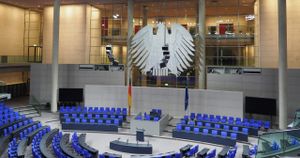The Russian government is actively considering conditions under which foreign companies can return to the Russian market, seeking to balance the interests of local producers with international trade regulations. This initiative, led by President Vladimir Putin, indicates Russia’s intent to reopen its economy to foreign investors who had exited amid geopolitical tensions.
According to reports from Vedomosti, the decision for these companies to re-enter the market will rely on approval from the Government Commission for Foreign Investments, which has been tasked with evaluating each case individually. This move signals a cautiously optimistic approach by the Kremlin to revitalize its economic ties with foreign brands, particularly those from countries perceived as 'unfriendly.'
President Putin underscored the need for any returning foreign company’s involvement to not infringe upon the competitive advantages of domestic manufacturers, all thewhile adhering to the rules set forth by the World Trade Organization. "We need to regulate this process to maintain advantages for domestic manufacturers but at the same time not violate World Trade Organization rules," he stated.
The Ministry of Finance has outlined key conditions for the return. Companies must navigate through existing presidential decrees—specifically decree #618 which outlines the special procedures for certain transactions, and decree #81, dealing with temporary economic measures aimed at ensuring financial stability. These directives are pivotal for businesses planning to return, indicating the government’s focus on careful regulation.
Maxim Reshetnikov, the Minister of Economic Development, reinforced the individualized nature of these decisions: "All decisions on allowing foreign companies from unfriendly countries on the Russian market will be made individually." This suggests not only regulatory complexity but also the government’s commitment to evaluating the specific situations of each foreign business.
This cautious optimism is echoed as certain brands, including the French automotive manufacturer Renault and the Spanish retail giant Inditex—which oversees popular fashion labels like Zara, Bershka, and Pull&Bear—have expressed intentions to return to Russia. Such developments imply potential growth opportunities for the Russian economy but also raise concerns among domestic producers about increased competition.
While there is enthusiasm from some sectors about the potential for revitalized partnerships, there are voices emphasizing the challenges this may present domestically. Policymakers must weigh the benefits of foreign investments against the potential disruption to local businesses, creating significant debate among Russian officials and industry leaders.
The discussions surrounding the return of foreign companies coincide with the beginnings of negotiations for resolving the Ukraine conflict, reflecting broader geopolitical dynamics at play. The timing is significant as it could reshape Russia's economic prospects and influence the market structure.
With multiple factors at play, including world market conditions and domestic political climates, the success of this initiative may hinge on how well the government can navigate these waters. The dual goals of attracting international businesses back to Russia, whilst also ensuring the stability and growth of local enterprises, present a complex challenge.
Overall, the framework being developed for foreign companies’ return is still taking shape. What remains clear is the Russian government's intention to rejuvenate its economy through international partnerships, albeit cautiously and strategically. The path forward will require thoughtful regulation and strong dialogues to secure both foreign investments and local business interests.



